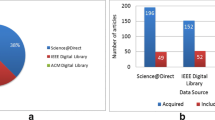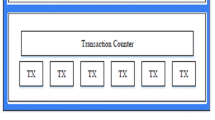Abstract
IoT data exchange services are emerging to connect various and distributed IoT data sources, which facilitate data owners exchange their IoT data flexibly. Traditional IoT data exchange services rely on a centralized third-party to negotiate the settlement of trades between data consumers and providers. Such settlement model suffers from issues including single point of failure, extra settlement fee, un-transparency of settlement details, to name a few. New settlement model is imperative to overcome such limitations. Blockchain is an innovative technology that is competent in governing the decentralized network, which poses great opportunity to implement fair settlement in decentralized manner. In this paper, we propose a Blockchain-enabled settlement model for decentralized IoT data exchange services. Firstly, Bitcoin-based time commitment scheme is adopted to build fair and autonomous settlement model. Furthermore, to enhance the accountability of all transactions, an optimized practical Byzantine fault tolerant consensus protocol named ReBFT, is proposed to enable all members involved in the IoT data exchange application achieve identical shared ledger recording all transactions. Finally, experiments are conducted to verify the feasibility of our proposal.









Similar content being viewed by others
References
Xu, X., Zhang, X., et al. (2020). Adaptive computation offloading with edge for 5G-envisioned internet of connected vehicles. IEEE Transactions on Intelligent Transportation Systems. https://doi.org/10.1109/TITS.2020.2982186.
Wan, S., Qi, L., et al. (2019). Deep learning models for real-time human activity recognition with smartphones. Mobile Networks and Applications, 2019, 1–13.
Zhang, M., Zheng, N., et al. (2018). A decomposition-based approach to optimization of TTP-based distributed embedded systems. Journal of Systems Architecture, 91, 53–61.
Zhao, Q., Gu, Z., et al. (2018). Schedulability analysis and stack size minimization with preemption thresholds and mixed-criticality scheduling. Journal of Systems Architecture, 83, 57–74.
Xu, X., He, C., et al. (2019). Joint optimization of offloading utility and privacy for edge computing enabled IoT. IEEE Internet of Things Journal. https://doi.org/10.1109/JIOT.2019.2944007.
Gu, Z., & Qiu, M. (2018). Introduction to the special issue on embedded artificial intelligence and smart computing. Journal of Systems Architecture, 2018, 1.
Xu, X., Mo, R., et al. (2019). Dynamic resource provisioning with fault tolerance for data-intensive meteorological workflows in cloud. IEEE Transactions on Industrial Informatics. https://doi.org/10.1109/TII.2019.2959258.
Qi, L., Chen, Y., et al. (2019). Faster R-CNN for multi-class fruit detection using a robotic vision system. World Wide Web Journal. https://doi.org/10.1007/s11280-019-00684-y.
Wan, S., Gu, Z., & Ni, Q. (2019). Cognitive computing and wireless communications on the edge for healthcare service robots. Computer Communications. https://doi.org/10.1016/j.comcom.2019.10.012.
Wan, S., & Goudos, S. (2019). Faster R-CNN for multi-class fruit detection using a robotic vision system. Computer Networks, 168, 107036.
Qi, L., Zhang, X., et al. (2019). Spatial–temporal data-driven service recommendation with privacy-preservation. Information Sciences. https://doi.org/10.1016/j.ins.2019.11.021.
Qi, L., Dou, W., et al. (2018). Dynamic mobile crowdsourcing selection for electricity load forecasting. IEEE Access, 6, 46926–46937.
Gong, W., Qi, L., et al. (2018). Privacy-aware multidimensional mobile service quality prediction and recommendation in distributed fog environment. Wireless Communications and Mobile Computing. https://doi.org/10.1155/2018/3075849.
Chi, X., Yan, C., et al. (2020). Amplified LSH-based recommender systems with privacy protection. Concurrency and Computation: Practice and Experience. https://doi.org/10.1002/CPE.5681.
Xu, Y., Qi, L., et al. (2017). Privacy-preserving and scalable service recommendation based on simhash in a distributed cloud environment. Complexity, 2017, 1–9.
Wang, S., Hu, L., & Cao, L. (2017). Perceiving the next choice with comprehensive transaction embeddings for online recommendation. In Joint European conference on machine learning and knowledge discovery in databases (pp. 285–302). Berlin: Springer.
Wang, S., Hu, L., Wang, Y., Cao, L., Sheng, Q. Z., & Orgun, M. (2019). Sequential recommender systems: challenges, progress and prospects. In Proceedings of the 28th international joint conference on artificial intelligence (pp. 6332–6338). New York: AAAI Press.
Queen’s Economics Department Working Paper (2018) (pp. 1–48).
Gonzalez, A. G. (2004). Paypal: The legal status of C2C payment systems. Computer Law and Security Report, 20, 293–299.
Xiao, Y., Liu, C., et al. (2019). Normachain: A blockchain-based normalized autonomous transaction settlement system for IoT-based e-commerce. IEEE Internet of Things Journal, 6(3), 4680–4693.
Edunuru, K., Gao, J., et al. (2005). P2P-paid: A peer-to-peer wireless payment system. In Proceedings of 2nd IEEE international workshop mobile commerce services (pp. 102–111).
Jovanovic, P., Kokoris-Kogias, E., et al. (2018). Omniledger: A secure, scale-out, decentralized ledger via sharding. In 2018 IEEE symposium on security and privacy (pp. 583–598). San Francisco, CA: IEEE Press.
Underwood, S. (2016). Blockchain beyond bitcoin. Communications of the ACM, 59, 15–17.
Xu, X., Zhang, X., et al. (2019). Become: Blockchain-enabled computation offloading for IoT in mobile edge computing. IEEE Transactions on Industrial Informatics. https://doi.org/10.1109/TII.2019.2936869.
Liu, Q., & Xu, X. (2019). A blockchain-powered crowdsourcing method with privacy preservation in mobile environment. IEEE Transactions on Computational Social Systems. https://doi.org/10.1109/TCSS.2019.2909137.
Nakamoto, S. (2009). Bitcoin: A peer-to-peer electronic cash system. https://bitcoin.org/bitcoin.pdf.
Ethererum. (2017). Ethereum blockchain app platform. https://www.ethereum.org/.
Ongaro, D., & Ousterhout, J. K. (2014). In search of an understandable consensus algorithm. In 2014 USENIX annual technical conference (pp. 305–319).
Li, W., Liu, J., et al. (2018). Scalable byzantine consensus via hardware-assisted secretsharing. IEEE Transactions on Computers, 68, 139–151.
Kraft, D. (2016). Difficulty control for blockchain-based consensus systems. Peer-to-Peer Networking and Applications, 9, 397–413.
Deetman, S. (2019). Bitcoin could consume as much electricity as Denmark by 2020. http://motherboard.vice.com/read/bitcoin-could-consume-as-much-electricity-as-denmark-by-2020.
Özyilmaz, K. R., Doǧan, M., & Yurdakul, A. (2018). IDMoB: IoT data marketplace on blockchain. arXiv:1810.00349.
Shaimaa, B., Dong, C., & Missier, P. (2019). Toward a decentralized, trust-less marketplace for brokered IoT data trading using blockchain. In 2019 IEEE international conference on blockchain (Blockchain) (pp. 339–346). Atlanta: IEEE.
Suliman, A., Husain, Z., et al. (2019). Monetization of IoT data using smart contracts. IET Networks, 8(1), 32–37.
Zhiqing, H., Su, X., et al. (2017). A decentralized solution for IoT data trusted exchange based-on blockchain. In 2017 3rd IEEE international conference on computer and communications (pp. 1180–1184). New York: IEEE.
Sasson, E. B., et al. (2014). Zerocash: Decentralized anonymous payments from bitcoin. In Proceedings of 2014 IEEE symposium on security and privacy (pp. 459–474).
Garman, C., Miers, I., et al. (2013). Zerocoins: Anonymous distributed e-cash from bitcoin. In Proceedings of 2013 IEEE symposium on security and privacy (pp. 397–411).
Deng, R. H., Liu, X., Zheng, D., & Zheng, Y. (2018). Outsourcing service fair payment based on blockchain and its applications in cloud computing. IEEE Transactions on Services Computing. https://doi.org/10.1109/TSC.2018.2864191.
Chen, X., Wu, Q., Huang, X., Shen, J., & Huang, H. (2018). Bitcoin-based fair payments for outsourcing computations of fog devices. Future Generation Computer Systems, 78, 850–858.
Ripple. (2017). Ripple. https://ripple.com.
Castro, M., & Liskov, B. (1999). Practical byzantine fault tolerance. In Proceedings of 3rd USENIX symposium operating system design and implementation (pp. 173–186).
Hyperledger. (2017). Blockchain technologies for business. https://www.hyperledger.org.
Ye, B., You, J., et al. (2018). A proof-of-trust consensus protocol for enhancing accountability in crowdsouring services. IEEE Transactions on Services Computing, 12, 429–445.
Kozhaya, D., Yu, J., et al. (2019). Repucoin: Your reputation is your power. IEEE Transactions on Computers, 68(8), 1225–1237.
He, J., Tian, H., & Li, H. (2017). A searchable symmetric encryption scheme using blockchain (pp. 623–644). arXiv:1711.01030.
Goodrich, M. T., Ateniese, G., et al. (2017). Accountable storage. In International conference on applied cryptography and network security (pp. 623–644). Kanazawa: Springer Press.
Acknowledgements
This paper is partially supported by the Open Project funded by State Key Laboratory of Novel Software Technology (Nanjing University, KFKT2019B19).
Author information
Authors and Affiliations
Corresponding author
Additional information
Publisher's Note
Springer Nature remains neutral with regard to jurisdictional claims in published maps and institutional affiliations.
Rights and permissions
About this article
Cite this article
Lin, W., Yin, X., Wang, S. et al. A Blockchain-enabled decentralized settlement model for IoT data exchange services. Wireless Netw (2020). https://doi.org/10.1007/s11276-020-02345-9
Published:
DOI: https://doi.org/10.1007/s11276-020-02345-9




